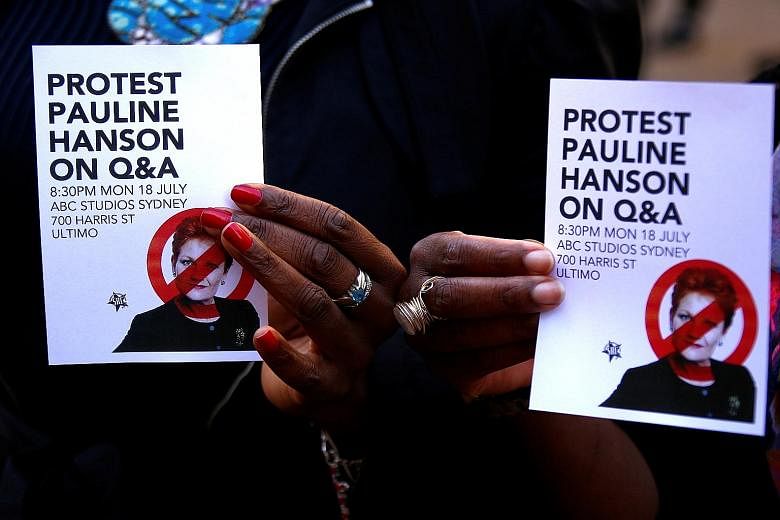In the lead-up to Australia's elections on July 2, Prime Minister Malcolm Turnbull was asked to comment on the prospect of a comeback by controversial right-wing firebrand Pauline Hanson.
Leaving little room for ambiguity, Mr Turnbull said Ms Hanson - known for her divisive anti-immigration and anti-Muslim views - was "not a welcome presence in the Australian political scene".
The voters disagreed. Ms Hanson not only was elected but also is likely to be joined in the Senate - the Upper House - by two other members of her One Nation party.
This week, Mr Turnbull took a markedly different approach towards the Queensland-based MP. He invited her to a private meeting in Sydney at which he carefully listened to her views on issues such as tourism in Queensland and family law.
Ms Hanson was pleased. "He asked for it (the meeting) and I attended," she said in a video posted on social media. "It was quite interesting and he was very gracious and opened with congratulations on my win, which I appreciated... I feel now that I have been listened to and my position as senator has been respected."
Mr Turnbull's conciliatory approach may have been partly motivated by the knowledge that he may need Ms Hanson's support in the Senate, where the ruling Coalition failed to win a majority.
But it also indicates a deliberate decision to take a different tack and try to avoid alienating Ms Hanson and her supporters.
Since she emerged triumphant at the elections, Ms Hanson has triggered a fierce debate on how the media and politicians should respond: Ignore her, denounce her or respectfully engage with - and challenge - her?
So far, she has proven difficult to ignore. In the past four weeks, she has received near constant media coverage.
Former foreign minister Bob Carr has described Ms Hanson as "an embarrassment to Australia" and Greens leader Richard Di Natale pledged to stridently oppose her "racist and bigoted agenda".
However, some commentators say that critics of Ms Hanson should not belittle or insult her - no matter how reprehensible they regard her views - because this will only further alienate her and the roughly half-million people who voted for her party. The risk, according to this view, is that blithely dismissing Ms Hanson, whose support tends to come from rural and marginalised areas, will only add to her aura of victimhood.
Conservative commentator Chris Mitchell, a former editor of The Australian newspaper and Queensland's Courier-Mail newspaper, said the media should confront Ms Hanson and her "politics of rural and regional discontent" by methodically using facts and investigative reporting to disprove her claims.
For instance, he said, the media could point out that most domestic terrorists in Australia have been Australian-born rather than migrants.
The current debate on the handling of the "Hanson phenomenon" echoes that in the late 1990s during her controversial stint as a Lower House MP. During that term from 1996 to 1998, then Prime Minister John Howard was attacked by political opponents for failing to swiftly condemn her. But he has stood by his approach, saying it helped to limit her support.
"I watched this debate back in 1998 and 1999, and the more she was attacked, the more popular she became because those attacks enhanced her 'Australian battler' image and she plays off that," he told reporters earlier this month.
"We are not a racist country and I wish people would stop reaching for that adjective whenever they want to... isolate somebody whom they don't agree with."
Mr Turnbull, who often seeks counsel from Mr Howard, seems to be shifting towards a more direct - and somewhat welcoming - approach towards Ms Hanson. Many in Australia, and abroad, will hope this may deprive her of media oxygen and the taint of victimhood that tends to add to her appeal.

